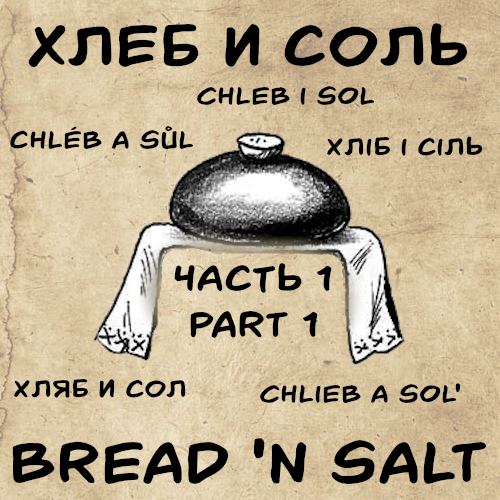Among all Slavic nations, the pair of “BREAD & SALT” since ancient times has become a symbol of hospitality, harmony, home well-being, prosperity, sacredness and purity. Traditionally, to maintain the well-being of the home, bread and a salt were always present on the table. Czech proverb: “Chléb a sůl zdobí stůl” (“Bread and salt decorate the table”). And the Russians used to say: “There is no lunch without bread and salt.” It was customary among all the Slavs, when setting the table, to first put bread and salt, and then the rest of the food.
ꏍ
Bread and salt were a symbol of hospitality, thus it was almost mandatory to offer them even to an enemy – the Poles had a saying: “Złemu wrogowi chleba i soli” (“Bread and salt to an evil enemy”). When meeting a guest, the hosts brought out bread with a salt cup on a towel or tablecloth. Refusal of bread and salt was greatly condemned: “Kdo u nás chleba a soli nepřijme, ten není hoden, abychom mu židli podali” the Czechs used to say (“Whoever does not accept bread and salt from us – is not worthy to be given a chair”).
ꏍ
The pair “bread and salt” among the Slavs also became a symbol of harmony. Bulgarians used to say: «като сол и хляб»; Serbs: «слажу се као хлеб и со»; Poles: “chleb z solą znak i hasło zgody” (“bread and salt – the sign and motto of agreement”).
ꏍ
To be continued…


